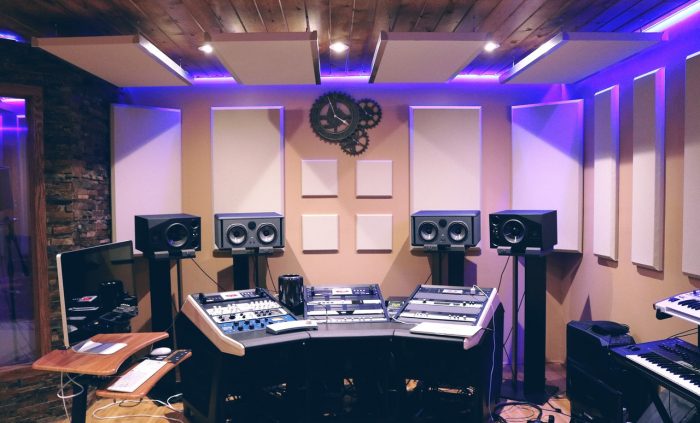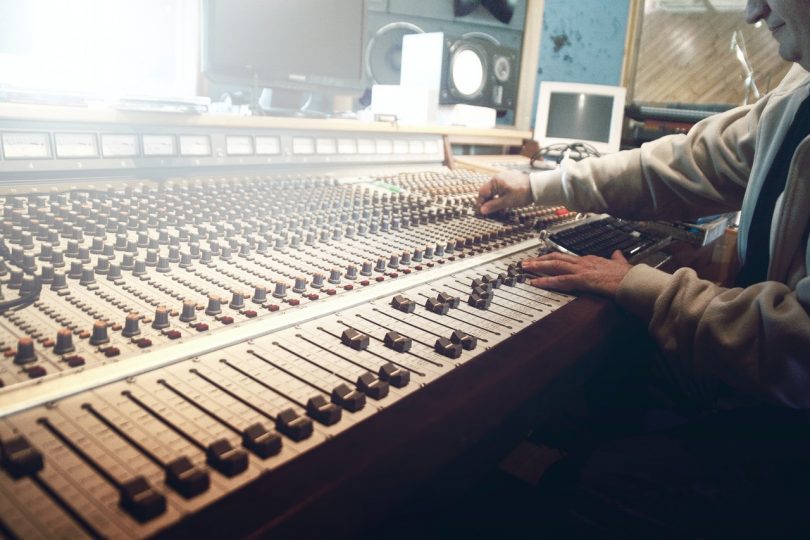With the constantly evolving landscape of digital music, it’s easier now, more than ever, to be self-managed in the music industry and still actually have your music available to the world.
With self-managed musicianship comes the right (and need) to choose personnel to fill out a team as well. Tour managers, guitar techs, lighting savants, audio engineers, and many more jobs used to involve a lot of middlemen.
But now, just as with making and distributing music, it’s a lot easier to be an audio engineer in a more “freelance” role and pick and choose with whom you work.
Whether you’re a college-aged student, or just someone looking for a career change, here are some tips to help you on your path to becoming an audio engineer:
What is an Audio Engineer?
Audio engineers (often called sound engineers) are the brains behind what makes the music sound “right.” Whether in-studio, or onstage, musicians don’t have magical ears and can only hear what they hear, just the same as the people in attendance.
In a live setting, audio engineers are responsible for routing sound throughout a venue to ensure that everyone in attendance, including the musicians, are hearing the same thing – regardless of where they’re standing.
In the studio setting, audio engineers (or recording engineers in some circles) are responsible for setting up microphones, controlling EQ levels and a variety of other things.
These tasks ensure that whatever notes/sounds/etc. come out of a musician or instrument sound exactly how the producer (which is sometimes the audio engineer, or musician) wants them to sound on the final product.
Pretty much anything with audio tracks that people are paying to see and hear had an audio engineer behind it: commercials, video games, albums, even some high-end podcasts (though generally a “one person, one mic” set up can survive without one).
Should I Go to School to Become an Audio Engineer?
If you’re about to hit the workforce for the first time, yes, as following a path to an audio engineering degree is pretty much as easy as it sounds.
Many colleges offer audio engineering degrees or something very similar.
Definitely educate yourself on what equipment will be available at your school of choice though, as some programs may have dated equipment, thus not delivering as good of an education for the modern music world.

What Else Can I Do?
For people looking to make a career change, don’t be nervous about the seemingly unique field of study that is audio engineering. There are many skills that transfer to the world of audio engineering.
Arts, of course, as it is ultimately a creative job, but the engineering side touches on a lot of similarities with skilled trades like being an electrician or mechanic.
Jobs like civil or software engineering are very similar, in the sense that you are arming yourself with knowledge to ultimately be creative. Civil engineers need to master mathematics to ensure their idea of a bridge/building/etc. will be functional.
Software engineers need to master a programming language to be able to bring their product ideas to fruition. Audio engineers need to master techniques to make what they hear in their heads, reality.
With that, there is almost certainly something in your profession that will have some crossover with audio engineering, so focus on the unknown and learn what you need to learn.
There are countless books on at-home audio, and the music industry changes like the wind with new technology, so you’re never too far behind anyone.
What’s Next?
To be blunt, getting a job in a studio or on a major tour is not something that happens every day.
If you decide to take the degree route and want to work in a studio, there will be internships (that are also hard to get), long hours of work unrelated to what you want to do, and a lot of thoughts about “is it worth it?”
If working in a big-name studio is what you want, then it is, indeed, worth it.
For folks who want to follow the trend of the self-managed musician, however, brushing shoulders and having content to push (this generally requires a little free work for someone) is the best path to becoming a professional audio engineer.
Every band who wants to take themselves seriously needs a great sound person, so going to local shows and meeting people on the brink of touring/recording/etc. will get you in the “meetings” you need to be in to land a job on the live side of music.
Creating a home studio is the first step for folks who want to take the path of being recording engineers, and then the same shoulder-brushing techniques are needed to find clientele.
Entrepreneur or Corporate?
Neither path is easy, and you really need to weigh the points above to choose the path for you.
If you do want to take the path of big-time studios, formal education is paramount – but if you choose to be a self-employed engineer, being social is paramount and a very difficult thing to do for a lot of music heads.
Both paths are, indeed, rewarding, and well worth the work that needs to be put in to be successful in the trade.


